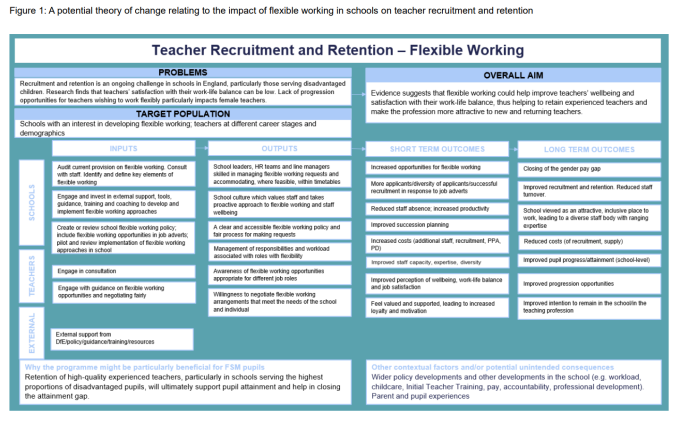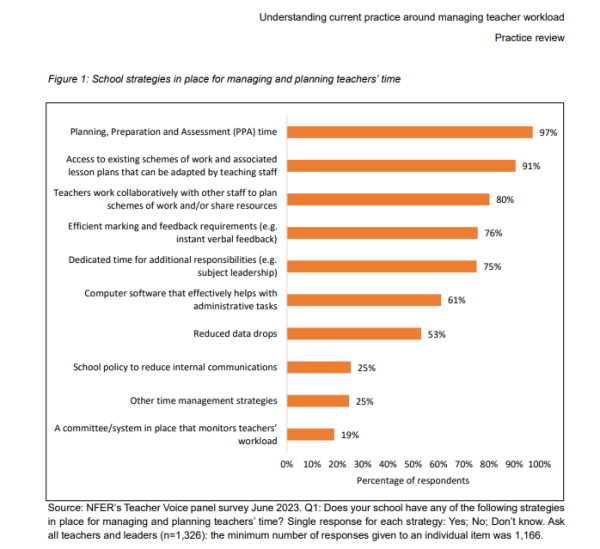EEF Teacher Retention Reports
Reports on Flexible Working, Workload, Leadership & Culture
During November 2023, the Education Endowment Foundation (EEF) has published 3 reports examining strategies to improve teacher retention.

Flexible Working Approaches
Evidence from a National Foundation for Educational Research (NFER) literature review, case studies and interviews with experts concluded that flexible working could help to improve wellbeing and job satisfaction, as well as teachers’ productivity and motivation.
Read the Report here.
Between a 1/5th and 1/3rd of teachers work part time, with this being common for primary than secondary teachers. Findings suggest that a proactive, whole-school approach is key to successfully implementing flexible working. Yet only 3% of schools surveyed had a published flexible working policy.
The research also highlights school leaders’ concerns around the strain it could put on school budgets, and the lack of consistency for pupils.

Workload Review
High workload is the top reason teachers give for leaving the profession, so reducing workload is a priority for improving retention and making teaching more attractive to new entrants.
Read the report here.
The NFER review focuses on how different approaches to managing workload can support recruitment and retention.
The review finds that most schools are using multiple strategies to manage teacher workload, most commonly giving timetabled time for planning and marking, offering access to existing schemes of work and lesson plans, and collaborative lesson planning.
Teachers in schools with more workload reduction strategies in place were much more likely to have positive views of their workload, autonomy and job satisfaction.
Leadership, Culture & Climate
Durham University and University of Warwick conducted an extensive review of the research literature, exploring the evidence base on school leadership for teacher retention.
Read the report here.
This review affirms the importance of school leadership in informing teacher retention, especially 3 approaches:
-
Prioritising teacher development.
-
Building relational trust, and,
-
Improving working conditions.
The review also underscores 4 prominent characteristics of school culture, climate, and structure that promote:
-
Collegiality.
-
Positive school discipline.
-
Intellectual stimulation.
-
Equity in workload arrangements and support distribution.
The review, “calls for concerted efforts to support quality professional development for school leaders to enact those potential leadership approaches and practices and to creatively contextualise configurations of workload in their schools, to motivate and retain teachers.”

